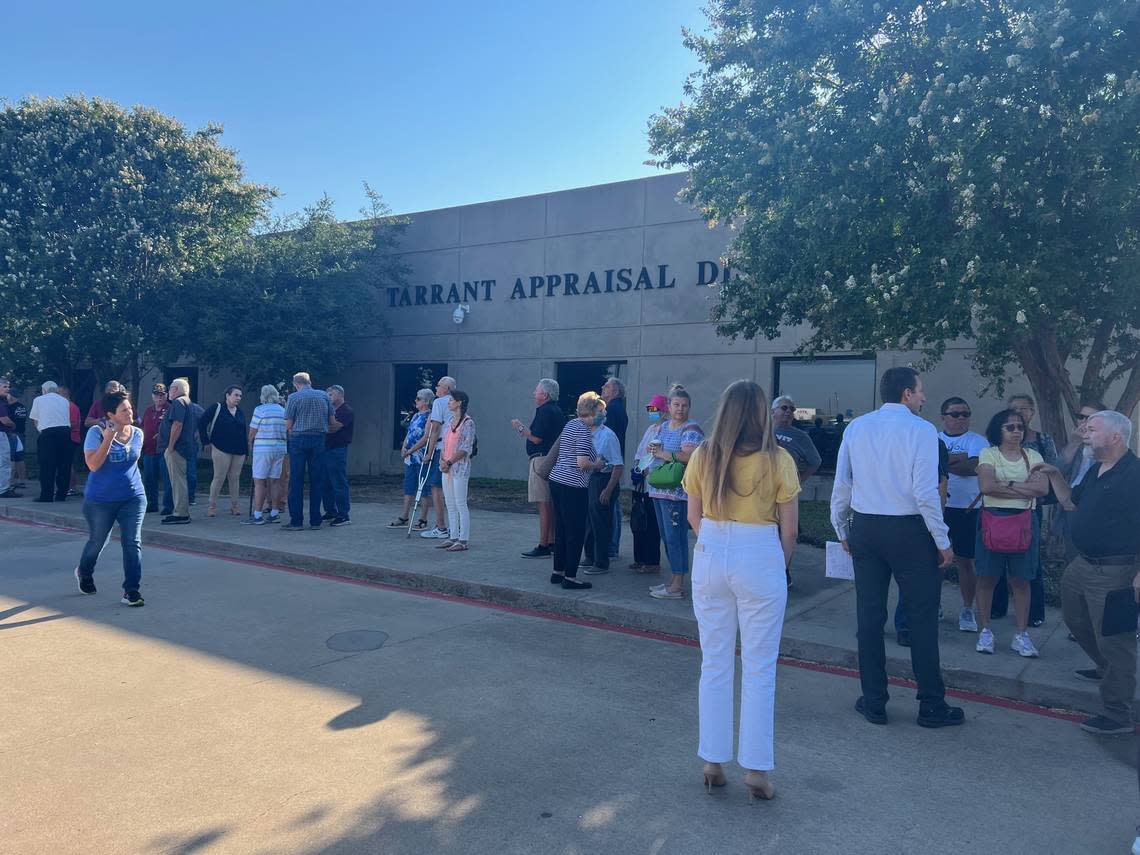Tarrant appraiser resigns after Star-Telegram questions potential conflict of interest

A former Tarrant Appraisal District employee resigned a week after the Star-Telegram questioned whether she was in violation of the organization’s conflict of interest rules.
The Tarrant Appraisal District code of conduct prohibits employees from selling real estate in Tarrant County while working at TAD.
Chana Massey started working at TAD in 2009, according to her personnel file, obtained by the Star-Telegram through an open records request. She joined the organization as a full-time residential valuation technician making $37,359 each year. Before her resignation in November, she was at TAD as a residential valuation analyst and earned $74,963.20 annually. In the course of her service, she received 10 merit increases and three promotions that each resulted in a 5% raise.
Massey obtained her first Texas real estate license in 2005, according to the Texas Real Estate Commission database. She and her colleague Robin Krueger formed the brokerage Massey Krueger Real Estate Services in 2016. Their website details the brokerage has sold at least 19 Tarrant County properties. The website does not list the address of an office, but the business address associated with Massey’s broker license is a residence in Decatur.
The Star-Telegram asked Chief Appraiser Jeff Law about the potential conflict of interest after the TAD board meeting on Nov. 11. Law said he would look into the matter.
The Star-Telegram requested a copy of Massey’s personnel file on Nov. 15. Two days later, on Nov. 17, Massey resigned from TAD employment after more than 13 years of service.
Massey didn’t respond to multiple requests for an interview. Law said he talked to Massey and she denied selling real estate in Tarrant County.
When asked about the enforcement process for these rules, Law said employees are notified of these rules when they are hired, but they’re not required to report if or when they take on a job in addition to a role at TAD. Abiding by the conflict of interest rules is the responsibility of the employee. He also noted that it’s not illegal to hold both roles and said some appraisal districts allow employees to sell real estate in the counties where they work.
Some might argue it’s a conflict of interest for a property tax consultant to protest home values while selling real estate, Law said, referring to Fort Worth property tax consultant and broker Chandler Crouch.
The code of conduct explains that unacceptable conduct could result in disciplinary action up to termination and possible legal action.
“It’s something that definitely needs to be looked at or reviewed,” board member J.R. Martinez said about potential conflicts of interest at TAD. “If there’s a conflict of interest, then, yeah, there is a concern.”
These conflict of interest rules — which are in use at appraisal districts across the state — help prevent multiple instances of impropriety, said Brent South, chief appraiser for the Hunt County Appraisal District and former president of the Texas Association of Appraisal Districts.
Appraisers have access to knowledge not available to the public that could unfairly benefit their real estate transactions, he noted. Or, for example, if an appraiser’s real estate clients protest home values, the appraiser could be compelled to give the client a better deal.
But, perhaps most crucially, conflict of interest rules protect appraisal districts’ commitment to transparency.
“The general public already has so much dislike and distrust for local government and any taxing authority, and then to find out their own internal policy is not even being enforced just adds fuel to that fire,” said South.
Punishment for violating that rule at his organization could be “up to termination,” he said.
“We have to protect the integrity of our office.”
